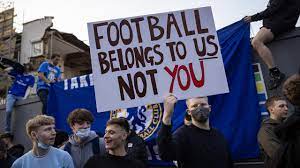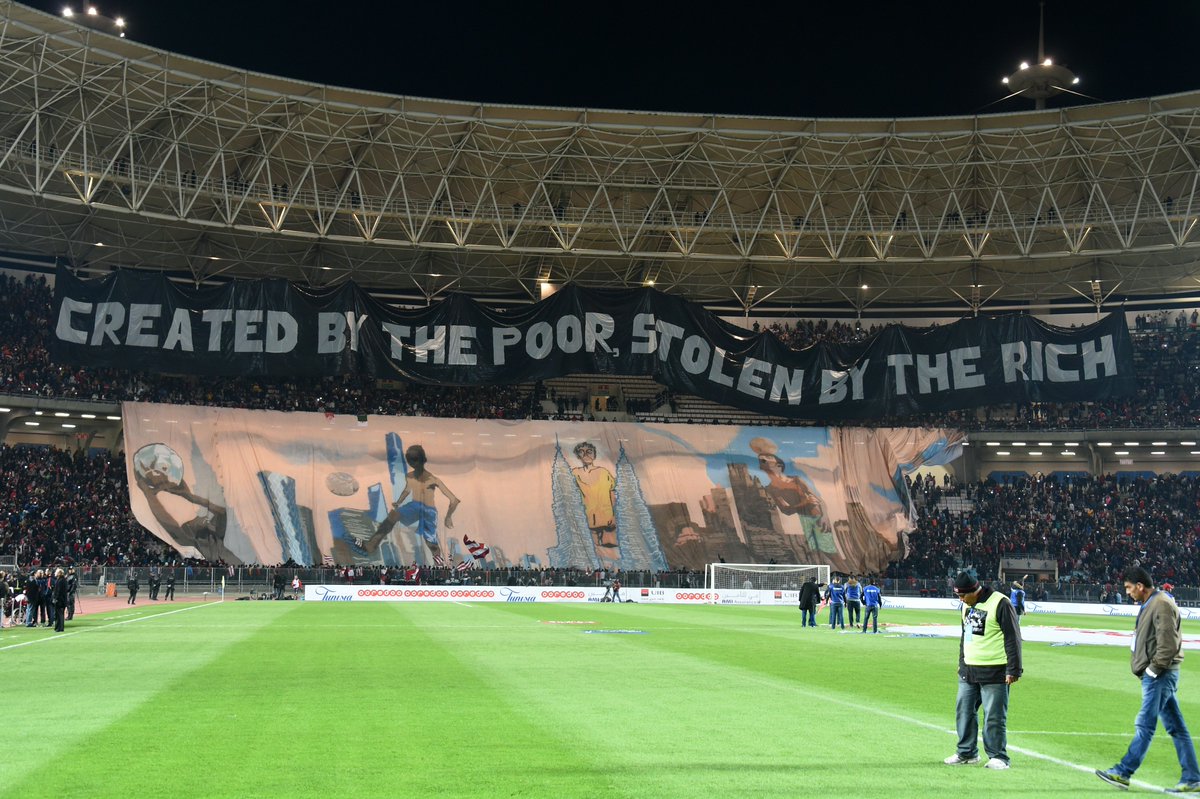Independent regulator for English football. What you need to know
English football’s newly established independent regulator will hold the power to prevent clubs from participating in a proposed breakaway European Super League.
The UK government has confirmed the implementation of this regulator, which was recommended by a fan-led review in the previous year.
The regulator aims to safeguard the cultural heritage of English football by preventing historic clubs from going out of business, providing fans with greater input, and enforcing a new owners’ and directors’ test.
The proposed regulator seeks to achieve the following objectives: first, to prevent English clubs from joining exclusive competitions that are detrimental to the domestic game.
Second, to prevent financial failures similar to those seen in clubs like Bury and Macclesfield.
Third, to introduce a stricter owners’ and directors’ test to protect both clubs and fans.
Fourth, to empower fans to veto any changes to a club’s name, badge, or traditional kit colours.
Finally, the regulator seeks to ensure that the distribution of money trickles down the English football pyramid fairly from the Premier League.
The main purposes of the proposed new regulator will be:
- Stopping English clubs from joining closed-shop competitions, which are judged to harm the domestic game
- Preventing a repeat of financial failings seen at numerous clubs, notably the collapses of Bury and Macclesfield
- Introducing a more stringent owners’ and directors’ test to protect clubs and fans
- Giving fans the power to stop owners from changing a club’s name, badge, and traditional kit colours
- Ensuring a fair distribution of money filters down the English football pyramid from the Premier League
“The English game remains one of the UK’s greatest cultural exports, with clubs and leagues around the world modelling themselves on its success,” the government said before its white paper on football governance – a policy document which outlines the proposed legislation – is released on Thursday.

“That is why the government is today taking the necessary and targeted steps to ensure that continues for generations.”
When the plans for a regulatory body were announced in April last year, the Premier League was reported to have expressed caution. The league emphasised the importance of ensuring that such a body does not cause any unintended consequences that could potentially harm its global popularity and achievements.
What will the regulator cover?
The proposed regulator will have a broad range of powers covering several areas, as per the UK government.
Firstly, it will be able to prevent English clubs from participating in closed-shop breakaway leagues that could harm the domestic game, such as the European Super League.
Additionally, the regulator will ensure that all clubs, from the Premier League down to the National League, have a sustainable business model implemented by responsible custodians as part of the application process for licensing. If clubs fail to obtain a license, they will not be permitted to compete.
The regulator will also put fans at the heart of how football is run by allowing them to have a greater say in their club’s strategic decisions, including moves that may prove controversial, such as changing the name, badge, or traditional kit colours, or moving stadiums.

The regulator will also enhance the current owners’ and directors’ tests to determine the suitability of owners and directors of English clubs, leading to stronger due diligence on sources of wealth, robust financial planning, and ensuring good custodians of clubs.
The regulator’s powers will also extend to imposing a new financial settlement to ensure a fair distribution of wealth across the pyramid, thereby compelling the Premier League to share more money.
The EFL has been pushing for a 25% share of pooled broadcast revenue with the Premier League, merit-based payments across all four divisions, and the abolition of parachute payments to teams relegated from the top flight.
The Premier League had initially expressed concern over the regulator’s creation, fearing any unintended consequences that could affect its global appeal and success.
The government, however, reassured that it remains fully behind the Premier League’s continued success and that a solution led by those running the leagues and their clubs is preferred.
However, if the football authorities cannot agree on a settlement, the regulator will have targeted powers of last resort to intervene and facilitate an agreement as and when necessary.
Why is this suddenly an issue?
The introduction of a regulatory body in English football has been a topic of debate, with opinions divided. Nevertheless, the creation of such an entity is viewed as one of the most significant changes to the game’s governance since Sheffield FC was founded in 1857.

Last year’s review, which was led by former sports minister Tracey Crouch and driven by fans, came in response to several high-profile crises in the sport. The government had promised a fan-led review in its 2019 general election manifesto after Bury’s expulsion from League One due to a failed takeover bid.
The review was expedited due to the Covid-19 pandemic, which led to matches being played without fans and impacted revenue, as well as the failed attempt to establish a 12-team European Super League in 2021.
The review’s recommendations aim to tackle concerns about the financial divide between the Premier League and the Championship, as clubs in the second tier have violated profitability and sustainability regulations in pursuit of promotion.
Will this protect football?
PM Rishi Sunak said the “bold new plans” would put fans “back at the heart of football”.
“Since its inception over 165 years ago, English football has been bringing people together, providing a source of pride for communities and inspiration to millions of fans across the country,” he said.
“Yet despite the success of the sport both at home and abroad, we know that there are real challenges which threaten the stability of clubs both big and small.
“The new plans will protect the rich heritage and traditions of our much-loved clubs and safeguard the beautiful game for future generations.”
Key areas the regulator will cover:
- European breakaway leagues
- Financial stability and fans’ input
- Additional owners’ and directors’ test
- Fairer distribution of wealth
Premier League, EFL and more react
While acknowledging the government’s dedication to safeguarding the Premier League’s accomplishments, the league expressed its apprehension about potential drawbacks of regulation on the game and its capacity to draw investment and interest.
The league assured that it would cooperate with all stakeholders in a constructive manner to ensure that the establishment of a regulator does not result in any undesired consequences that could jeopardize its status as the most-watched football league globally.
EFL says reset was ‘necessary’
The enhanced regulation proposals were supported by the English Football League.
In a statement, the EFL emphasized that a fundamental financial reset was necessary for the English game to become sustainable.
According to the statement, the white paper represented a unique opportunity to address the systemic issues that football had failed to resolve over the last three decades.
Football Association CEO Mark Bullingham considered the recommendation to increase funding for the grassroots game to be a vital component of football’s long-term future.
Maheta Molango, the chief executive of the Professional Footballers’ Association, said that the white paper appropriately emphasized ensuring well-run clubs that operate on a more sustainable financial footing.
Molango also expressed a commitment to maintaining the necessary mechanisms and structures to safeguard players’ rights and conditions as part of any future financial reforms in football.
Timeline of events that led to independent regulator
- August 2019: Bury are expelled from League One due to a failed takeover bid.
- December 2019: Conservatives promise a fan-led review in response to Bury’s demise.
- 2020-21 season: Matches are held behind closed doors due to Covid-19, affecting revenue.
- April 2021: Proposed European Super League collapses within days due to widespread condemnation.
- October 2021: Amnesty International calls for changes to the Premier League owners’ and directors’ test following the takeover of Newcastle United.
- November 2021: Fan-led review recommends an independent regulator among 10 changes to improve football governance.
- March 2022: Chelsea owner Roman Abramovich is sanctioned by UK government and sells the club to Todd Boehly.
- November 2022: 29 clubs write to the government urging plans for an independent football regulator to be pursued.
Related
-
Scientists reveal the difference between ‘showers and ‘growers’
-
Ivana left Donald Trump nothing but tried to give another ex-husband property
-
Aston Martin reveals 2026 F1 car launch date
-
Match schedule plan revealed for day after draw
-
How many England openers have bagged a pair in Australia





